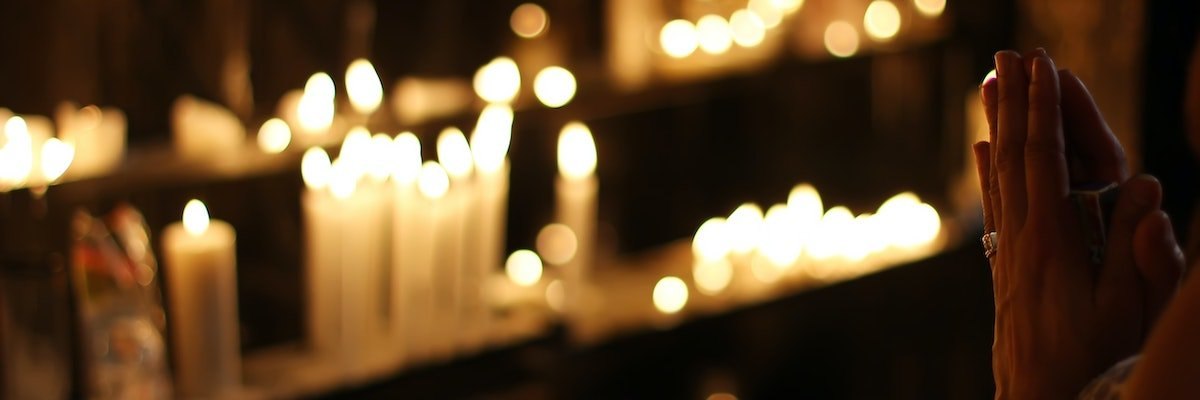Over the past few years, there has been a noticeable decline of faith in moral values among Americans, accompanied by a decrease in religious affiliation. Do Americans think that religion and morality are intertwined? As part of a larger project on morality, YouGov asked Americans whether they saw a connection, and while many do see religion as important for morality, religion often isn't seen as essential for it.
Religious organizations are an important source of moral values for many Americans: Almost half (47%) of Americans say that churches and religious organizations strengthen morality in society, 26% say they do not make much difference, and only 13% say they weaken morality in society. While most Republicans (67%) say churches and religious organizations strengthen morality in society, less than half of Independents (38%) and Democrats (39%) agree. Age also is linked to opinion on religious organizations and morality: Americans 45 and older are more likely than younger adults to say that morality is strengthened by churches and religious organizations. Americans who believe in a God (65%) are more likely to agree with this stance than those who don’t believe in a God but believe in a higher spiritual power (28%) and those who believe in neither a God nor a higher spiritual power (20%).
Even though religion is important to many Americans, most of them do not think that religion is a requirement for morality. Although one-third (32%) of Americans say it is necessary for a person to believe in a God or higher power for them to be moral, most Americans (53%) disagree. Democrats (35%) and Republicans (41%) are more likely than Independents (22%) to say that belief in a God or higher power is a prerequisite for morality. Opinions on this also vary by age: 27% of Americans 45 and older say believing in a God or higher power is not necessary for someone to be moral, compared to 37% of younger adults. Although Americans who believe in a God (40%) are more likely than those who do not believe in God or a higher power (19%) to say that believing in a God or higher power is necessary for someone to be moral, about half (48%) of believers in God say the opposite: that belief in a God or higher power is not necessary for someone to be moral. That figure is much higher — 76% — among people who don't believe in God or a higher power.
Americans are about as likely to say belief in God or a higher power is associated with greater personal morality than to say there is no association. More than one-third (36%) of Americans say that people who believe in God or a higher spiritual power tend to be more moral than those who don't, while 39% say that believers and non-believers are equally moral; 11% say that they tend to be less moral. Republicans (53%) are more likely than Democrats and Independents (29% each) to say that believers in God or a higher power are more moral than non-believers. A higher percentage of Americans 45 and older than younger adults say this. About half (52%) of Americans who say they believe in a God say that people who believe in God or a higher spiritual power are more moral than those who do not, compared to 16% of those who believe in a higher spiritual power, but not a God; and 13% of those who believe in neither a God nor a higher spiritual power.
— Carl Bialik and Milan Dinic contributed to this article.
Related:
- Do Americans consider AI in courtrooms, hiring, and the military to be moral?
- Do Americans think being moral is the same thing as following the law?
- Which actions — and people — do Americans consider immoral?
- How do Americans think about morality in the U.S. today?
- The moral state of American politics
- How do Americans view the morality of personal and societal health decisions?
See the results of this YouGov poll
Methodology: This article includes data from two online polls conducted November 17 - 21 and November 18 - 21, 2022 — each among 1,000 U.S. adult citizens. The 2,000 respondents were selected from YouGov’s opt-in panel using sample matching. A random sample (stratified by gender, age, race, education, geographic region, and voter registration) was selected from the 2019 American Community Survey. The sample was weighted according to gender, age, race, education, 2020 election turnout and presidential vote, baseline party identification, and current voter registration status. Demographic weighting targets come from the 2019 American Community Survey. Baseline party identification is the respondent’s most recent answer given prior to March 15, 2022, and is weighted to the estimated distribution at that time (33% Democratic, 28% Republican). The margin of error for the overall sample is approximately 2%.
Image: Pexels (Rodolfo Clix)









